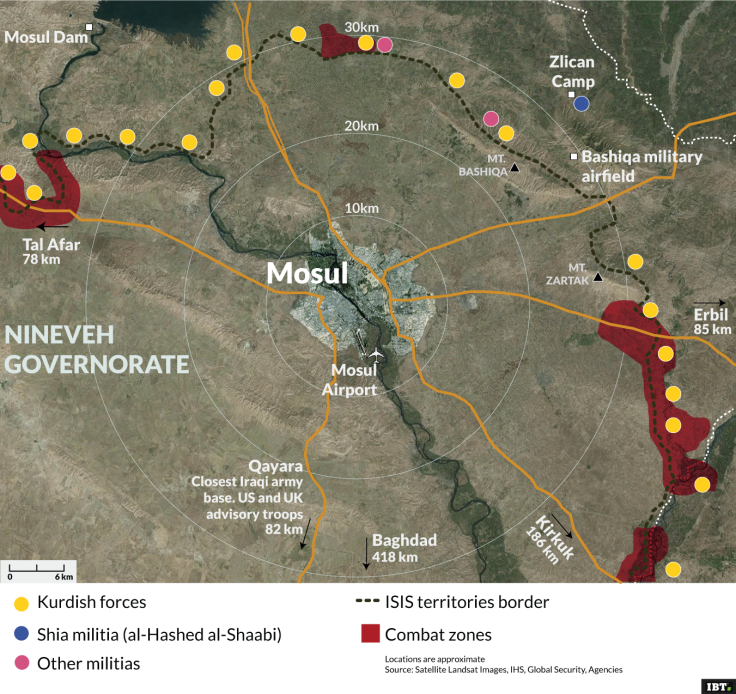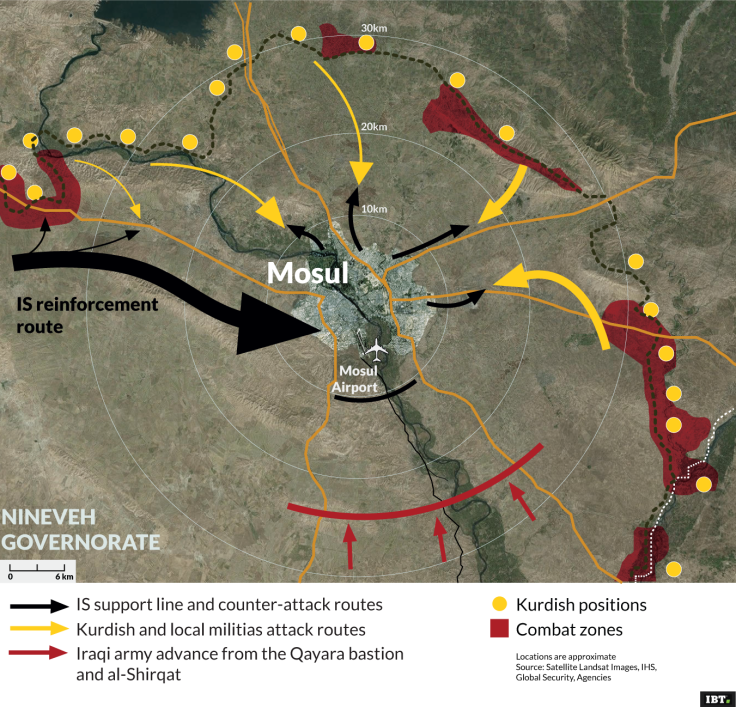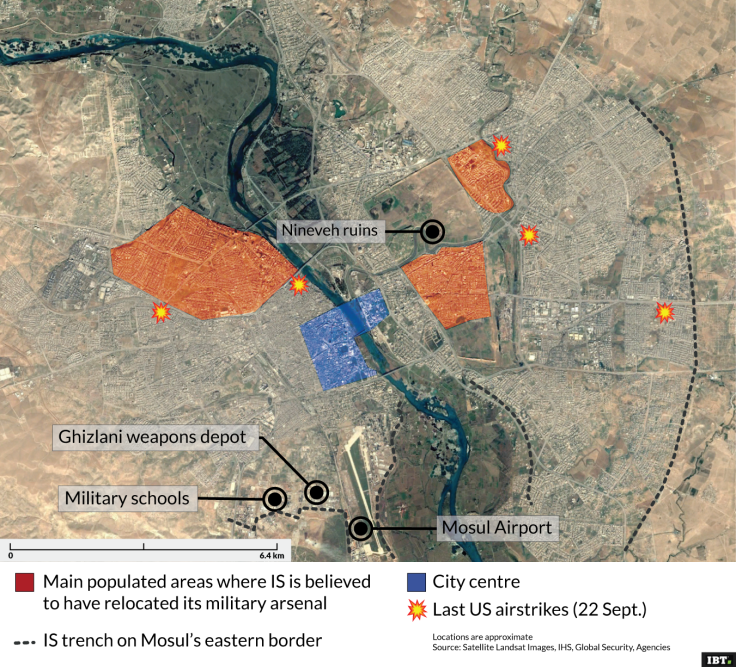The Battle for Mosul: 3 maps explaining the planned offensive against the Isis stronghold in Iraq
Iraqi army units will push towards Mosul from the south while the Kurds wait in the wings
As Islamic State (Isis) fortifies the outskirts of Mosul with oil-filled trenches, barricades and blast walls, the Iraqi army and Kurdish forces surrounding the city are preparing for a bloody battle to liberate Iraq's second biggest city from the jihadis. After two years of brutal IS rule in Mosul, Baghdad is poised to take the city back with intelligence sources confirming to IBTimes UK on Monday (26 September) that the troops would move in before early October.
Iraq's armed forces, fighting alongside Iranian-backed Shia militias and bolstered by US air strikes, have seized Tikrit and Ramadi from IS over the last 12 months and last week liberated the southern town of Shirqat. On Monday morning, the Iraqi army successfully repelled an attack of IS fighters in the recently liberated area of Qayara, 80km south of Mosul. IS has gone on the counter-attack in al-Zawya, north of Baghdad, but are believed to have suffered heavy losses.
Iraq's Nineveh Governorate has been the focal point of the IS campaign in Iraq, and Mosul is its main centre of operation outside of Syria. With the Kurdish Peshmerga fighting in the north and east of the province, Mosul is now surrounded, with most of the connecting roads held by either Kurdish or Shia militia troops. This leaves IS with only one supply line, connecting the city to Tal Afar, 78km west of Mosul.

There has been much speculation about who will be involved in the battle to take back the city. The Kurds, who have proved integral to containing the jihadi group since 2014 in both Iraq and Syria, are unlikely to want to penetrate central Mosul, a Sunni Arab city with little connection to the Kurdish region. Likewise, it is not clear whether the Shia militias that have fought to take back Ramadi and Tikrit will be involved in taking back Mosul.
The US has committed $181m in humanitarian aid and is looking to add 500 more American troops to the 4,470 already in Iraq. Iraq army spokesperson, General Yehia Rasoul, has confirmed that the main military operation will be led by Iraqi forces and local allied fighters and that no foreign troops will be involved in front line operations.
But US and UK air strikes will likely play a major role in the operation. In the last days, eight Tornado and six Typhoon aircraft stationed at Cyprus RAF Akrotiri base have destroyed numerous IS targets in support of the Iraq troops.

Kurdish officials have also decided to limit their operation to the outskirts of the city. Sheikh Jafaar Mustafa, commander of the Peshmerga 70 forces said on Saturday that Kurdish troops will advance to re-take what they believe are "Kurdish lands".
The Kurdistan Democratic Party in Mosul announced on Sunday it had arrested seven senior leaders of the IS Shura Council of Abu Hammam al-Souri, who were trying to escape from the suburb south of Mosul in an attempt to reach IS-controlled Tal Afar and Syria.
Meanwhile, US military officials have revealed details of how the Islamic State is preparing its defensive line. Col. John Dorrian stated that the jihadist group has dug trenches and built walls around Mosul to secure strategic points and to slow down the advance of the Iraqi Army.
In recent weeks, IS troops have now moved their HQ and most of their arsenals into the main populated areas of the city, less likely to be bombed but where militants will probably fight more, increasing the risk of casualties among civilians. IS is also moving snipers and missile positions into the city centre as well as into the airport area and along the eastern border of the city.
Satellite images also reveal the presence of long canals filled with oil, with IS planning to start a fire when the offensive begins. Militants are also building several walls and blocks around the city centre and main streets of the city, with the intent of slowing down the offensive.

© Copyright IBTimes 2025. All rights reserved.






















